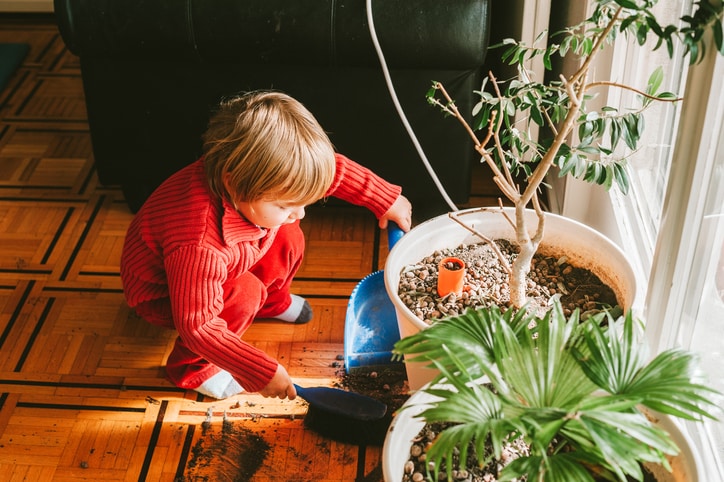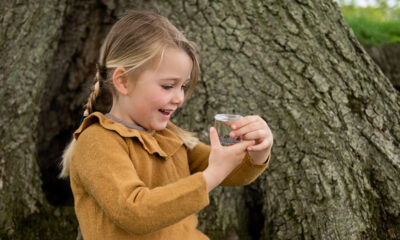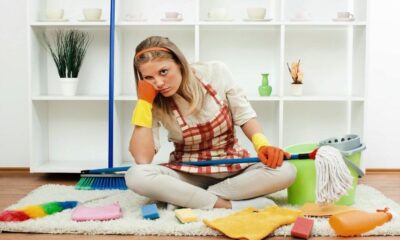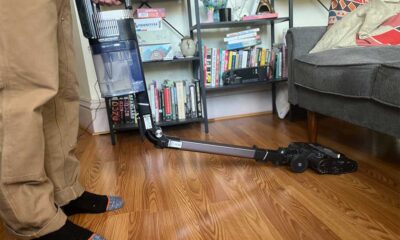Activities
Chores and Cleaning Up – Activities


Kids benefit from participating regularly in chores in many different ways. Chores teach children
responsibility, pride in their belongings and their home, routine, and other lifelong skills that will
help kids become more successful and organized later on in life. It’s important, however, for
parents to find the right balance of appropriate chores based on their child’s age and ability.
To begin teaching your child chores, start with clear communication. Your kids learn from
watching you, they want to grow up and be just like you- and that includes cleaning the house!
Sit down with your child and talk to them about how every family member contributes to chores
and keeping the house clean, and tell them how excited you are to give them their very own
chore! Talk about all the things that need to be done for the house to keep everything running
smoothly. For example, after dinner, we put the dishes in the sink, rinse them, and load the
dishwasher. What would happen if we didn’t do the dishes? (We wouldn’t have dishes to use for
our next meal.)
Find out what your children are interested in learning or doing to contribute. If your child is
fascinated with the vacuum cleaner, maybe they would like to vacuum the living room. Walk
them through exactly what you expect them to do. The step before vacuuming is to pick toys up
off the floor. (“Your stuffed animals go in the basket when you’re done playing with them”).
Especially when your child is learning, notice and praise their effort. Try to let go of your
standards of perfection, or that there is a right way to do it (your way). There are many ways to
fold a towel. As long as the towels fit in the cabinet, can you let go of your “right way?” Help
them to feel proud of themselves for doing their chores. They are a valuable part of the family,
and we all can appreciate how everyone contributes.
When talking to your toddler about chores, keep it very simple. While your ten-year-old might be
able to unload the dishwasher with very little direction, your three-year-old may need more
simple and clear instructions, as well as gentle reminders and redirection to stay on task to pick
up their toys off the floor. When your toddler is first learning, help them out. As they get better at
their chore, gradually help less and less. Before you know it, they’ll be completing their tasks on
their own!
As your child gets older and masters their original chores, begin adding in new ones. Consider
varying chores week-to-week to mitigate frustration or boredom. If they’re pros at putting their
toys in the basket, practice having them line their books on the bookshelf as well, and then put
their plate in the sink after dinner.
Some kids thrive by seeing their chores written out in a chart, and others prefer being reminded
at certain times of the day (for example, laundry gets taken out in the morning and toys are
picked up after dinner). Find what works best for you and your family, and follow through with it.
And as with anything, give your child lots of praise! Chores aren’t always fun for kids, but
positive reinforcement gives them the encouragement they need to continue and be successful.
Chore ideas based on age:
Ages 2-3
● Put away toys
● Water plants
● Pile up books
Ages 4-5
● Unload utensils from the dishwasher
● Help put away groceries
● Make their bed
● Clear the table
● Fill up the pet’s food bowl
Ages 6-7
● Sweep floors
● Set the table
● Sort laundry
● Keep their room tidy
Ages 8+
● Load dishwasher
● Vacuum
● Put away their laundry
● Make their own snacks
● Take the pet for a walk
As with anything, focus more on your child’s efforts and less on perfection. If your child is trying
their best and contributing to the household chores, provide them with plenty of praise
consistently. They won’t always want to do their chores, and that’s normal. Try to make it fun by
racing to see who can finish the quickest, or by helping them be silly during chores. Keep it fun!
Triple P – Positive Parenting Program
Are you interested in receiving more parenting advice? Triple P Online – Positive Parenting
Program could be for you! This online parenting program allows you to take a parenting class in
the comfort of your own home!
If you live in Lane County, you can get Triple P Online for free by filling out the form on the
Triple P page. A staff person from Activities will send you an access code within 24 hours
and you’ll be able to start using the program right away! For more information about the
program and to sign up visit the Triple P page.
-

 Destination8 months ago
Destination8 months agoSingapore Airlines CEO set to join board of Air India, BA News, BA
-

 Breaking News10 months ago
Breaking News10 months agoCroatia to reintroduce compulsory military draft as regional tensions soar
-

 Gadgets3 months ago
Gadgets3 months agoSupernatural Season 16 Revival News, Cast, Plot and Release Date
-

 Tech News12 months ago
Tech News12 months agoBangladeshi police agents accused of selling citizens’ personal information on Telegram
-

 Productivity11 months ago
Productivity11 months agoHow Your Contact Center Can Become A Customer Engagement Center
-

 Gadgets3 weeks ago
Gadgets3 weeks agoFallout Season 2 Potential Release Date, Cast, Plot and News
-

 Breaking News10 months ago
Breaking News10 months agoBangladesh crisis: Refaat Ahmed sworn in as Bangladesh’s new chief justice
-

 Toys12 months ago
Toys12 months ago15 of the Best Trike & Tricycles Mums Recommend























